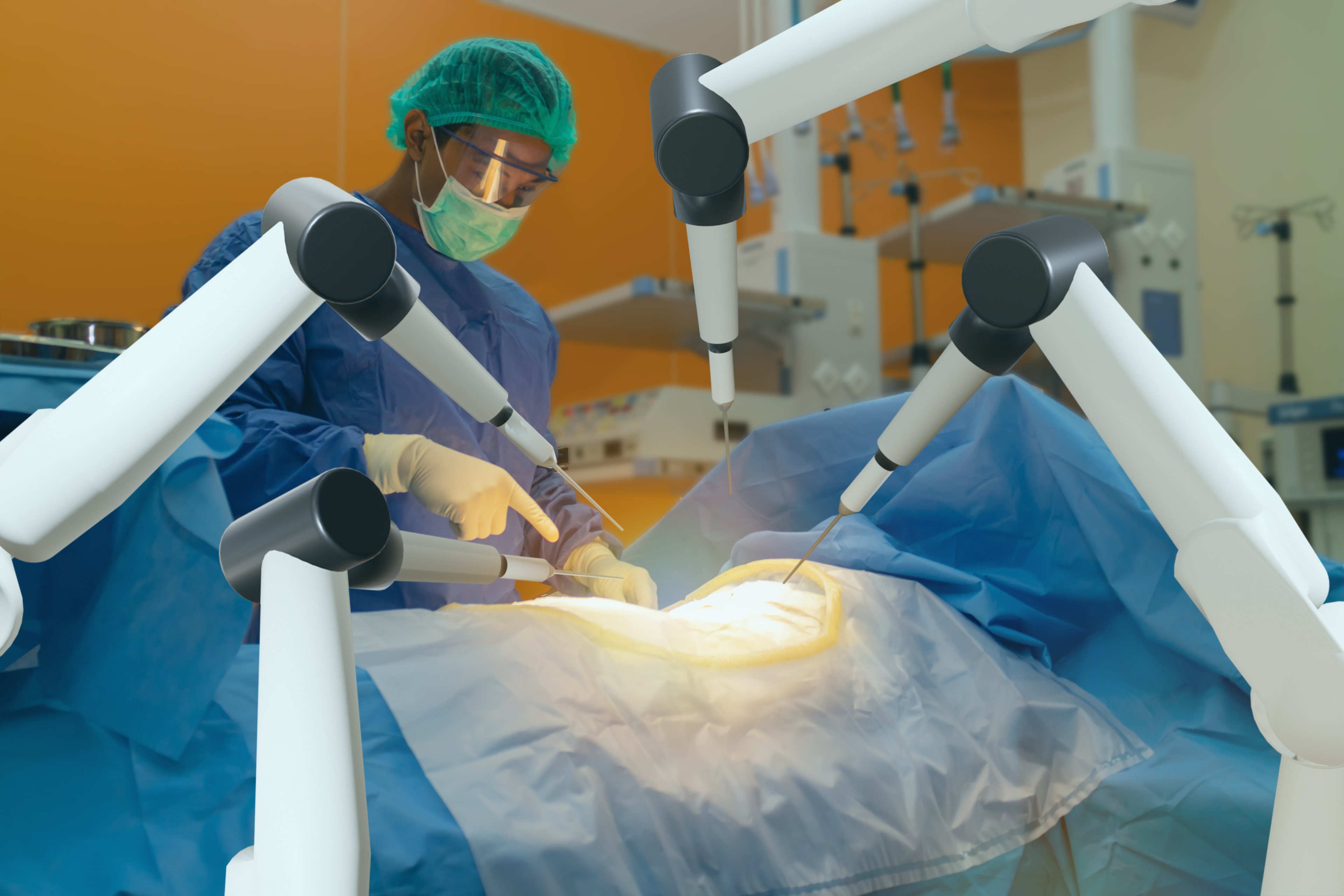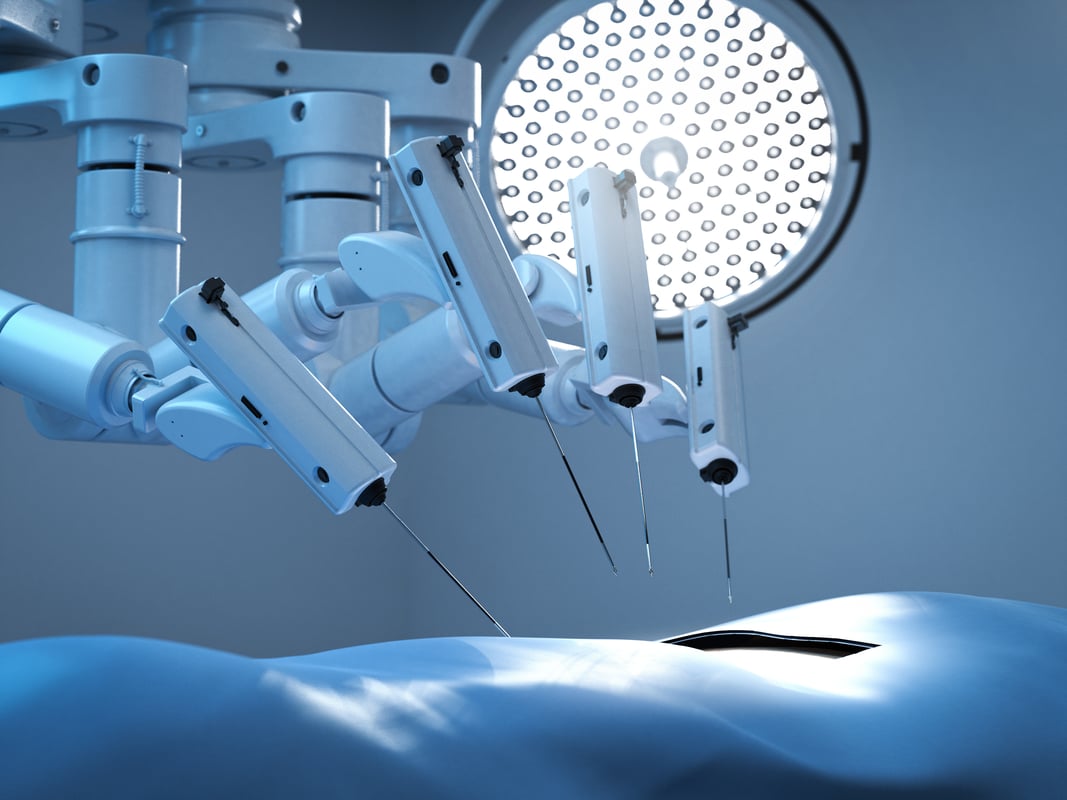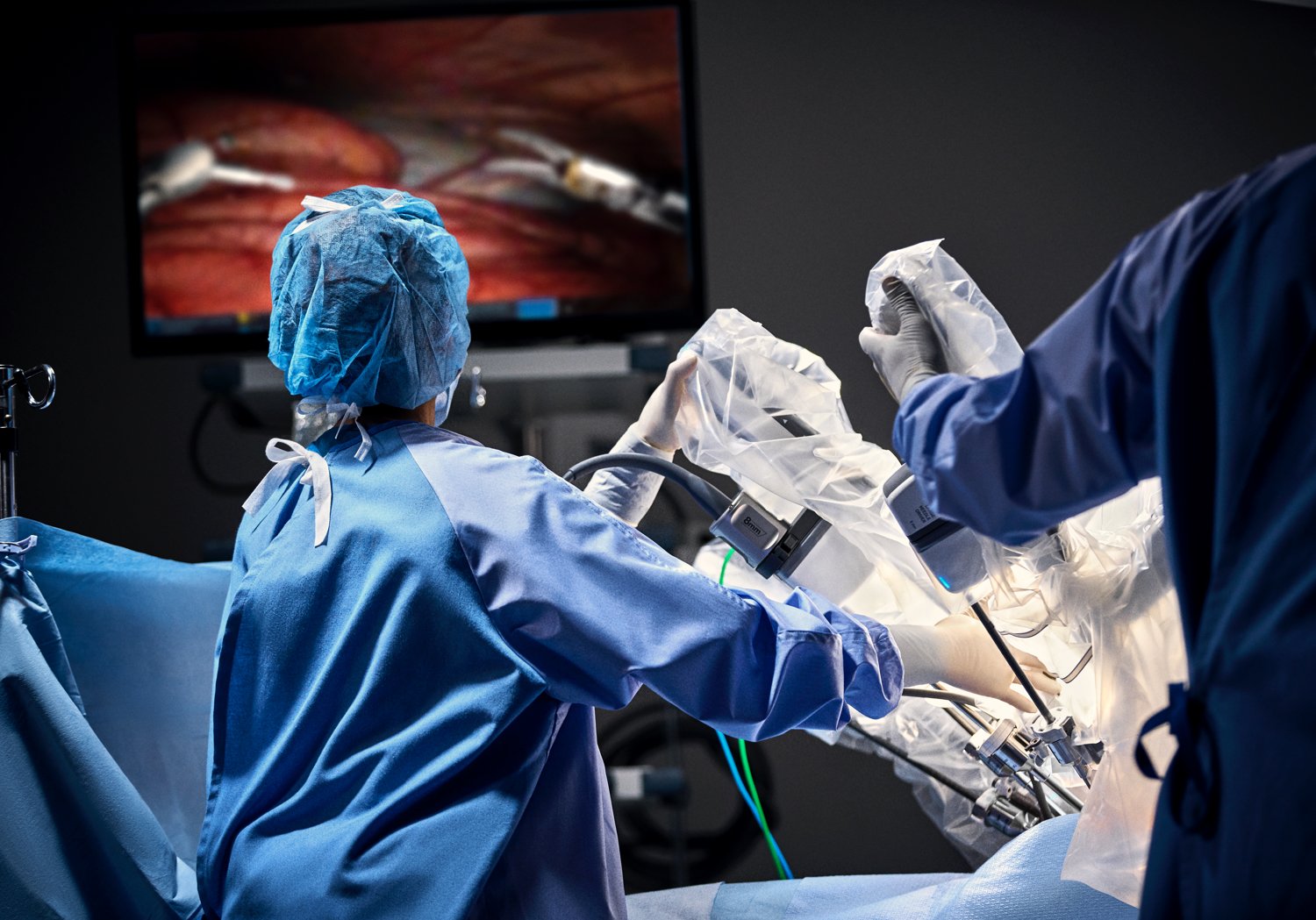Making money on the stock market is simple, at least in theory. All an investor needs to do is to buy shares of public companies that have a competitive advantage -- and that, as a result, can continue generating growing revenue and earnings for decades -- and hold these shares for a long time.
But it isn't always simple to identify companies with a strong competitive advantage. Today, we'll look at two healthcare stocks that sport a healthy moat, and explore why both of these stocks are worth adding to your portfolio. These stocks are Vertex Pharmaceuticals (VRTX +1.36%) and Intuitive Surgical (ISRG 0.13%).
This company holds a monopoly in the market for CF drugs
Vertex Pharma is a biotech company that has one of the most compelling competitive advantages any business can have: The company holds a monopoly in the market for drugs that treat the underlying causes of cystic fibrosis (CF), a genetic condition that causes damage to internal organs such as the lungs. CF is caused by more than 100 different genetic mutations, which means not all drugs that address the underlying causes of this rare disease can treat all CF patients.

Image source: Getty Images.
Vertex's Trikafta was approved by the U.S. Food and Drug Administration (FDA) in October, and this drug targets the most common CF mutation. This approval means that Vertex can now treat about 90% of CF patients, which amounts to approximately 68,000 of the 75,000 patients in the U.S., Europe, and Australia who have CF. Trikafta is already successful, despite having been launched less than a year ago. During the fourth quarter of its fiscal year 2019, Vertex recorded net revenue of $1.4 billion, a 63% year-over-year increase.
Trikafta's revenue for the fourth quarter was $420 million. Then, during the first quarter, the biotech company reported net revenue of $1.52 billion, representing a 77% increase compared to the year-ago period. Trikafta's revenue for this quarter was $895 million. Vertex's revenue and earnings will continue to grow as the company remains the only player in this space.
Of course, Vertex isn't completely bulletproof, and there are several risks to consider with this company. First, there's the risk that Vertex will lose patent protection for some of its products. Its earliest patent expiration is in 2025 when the company's patent for Kalydeco will expire in Europe. Similarly, several other drugs Vertex markets will lose their patent protection between 2026 and 2030, both in the U.S. and Europe. However, 2025 isn't exactly around the corner, and Trikafta -- by far Vertex's most important drug to date, which already accounts for the bulk of its revenue -- likely won't lose patent protection until well into the 2030s.
Second, other companies are currently looking to develop treatments for CF. For instance, pharma giant AbbVie (ABBV 2.67%) has an investigational CF drug in early-stage testing. But AbbVie's product isn't even close to hitting the market, that is, if it ever does. Vertex has nothing to fear from this competitor -- and others -- for the foreseeable future. Thanks to its dominance in its niche market, Vertex looks poised to continue delivering market-beating returns to its shareholders.
The leader in robotic-assisted surgery
Intuitive Surgical is the leading company in the market for robotic-assisted surgery. The company's da Vinci surgical system has been highly successful since it was first cleared by the FDA in 2000, and Intuitive Surgical will likely continue its dominance for many years to come. With 5,669 of its da Vinci systems installed worldwide (as of March 31), Intuitive Surgical has more installed bases than any of its competitors.
However, the company's competitive advantage doesn't stop there. Due to its status as a pioneer in this industry, Intuitive Surgical has already jumped through hoops other companies will have to deal with before catching up. For instance, robotic-assisted surgery devices are complex systems to use, and doing so requires intensive training. Intuitive Surgical has already trained thousands of healthcare professionals, both in the U.S. and abroad.
Furthermore, these complex robotic systems need to clear regulatory hurdles and need accompanying instruments and accessories. And companies that manage to clear all these hurdles still have to market their products to healthcare facilities. Intuitive Surgical benefits from its status as a first-mover in this market, and other companies will have to do a lot of work to knock it off its perch.
There's at least one more thing to consider. Intuitive Surgical's da Vinci aystems cost anywhere between $500,000 and $2.5 million. This price tag could be off-putting to many of its potential clients, but Intuitive Surgical found a way around this problem. In 2013, the company started offering leasing arrangements, which gives its customers more flexibility in how they pay for the da Vinci system. Even with potential competitors such as Medtronic (MDT 0.97%) and Johnson & Johnson (JNJ +1.04%), Intuitive Surgical will continue to deliver strong returns to investors as the market for robotic surgery grows thanks to its aforementioned competitive advantage. Investors would do well to buy shares of this healthcare stock right now.










